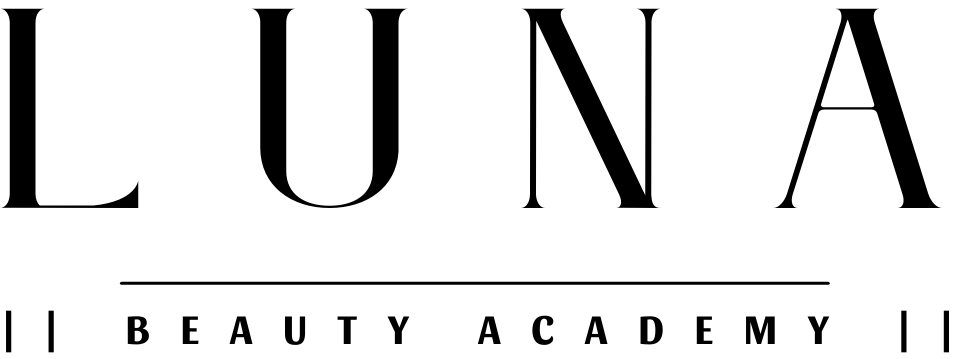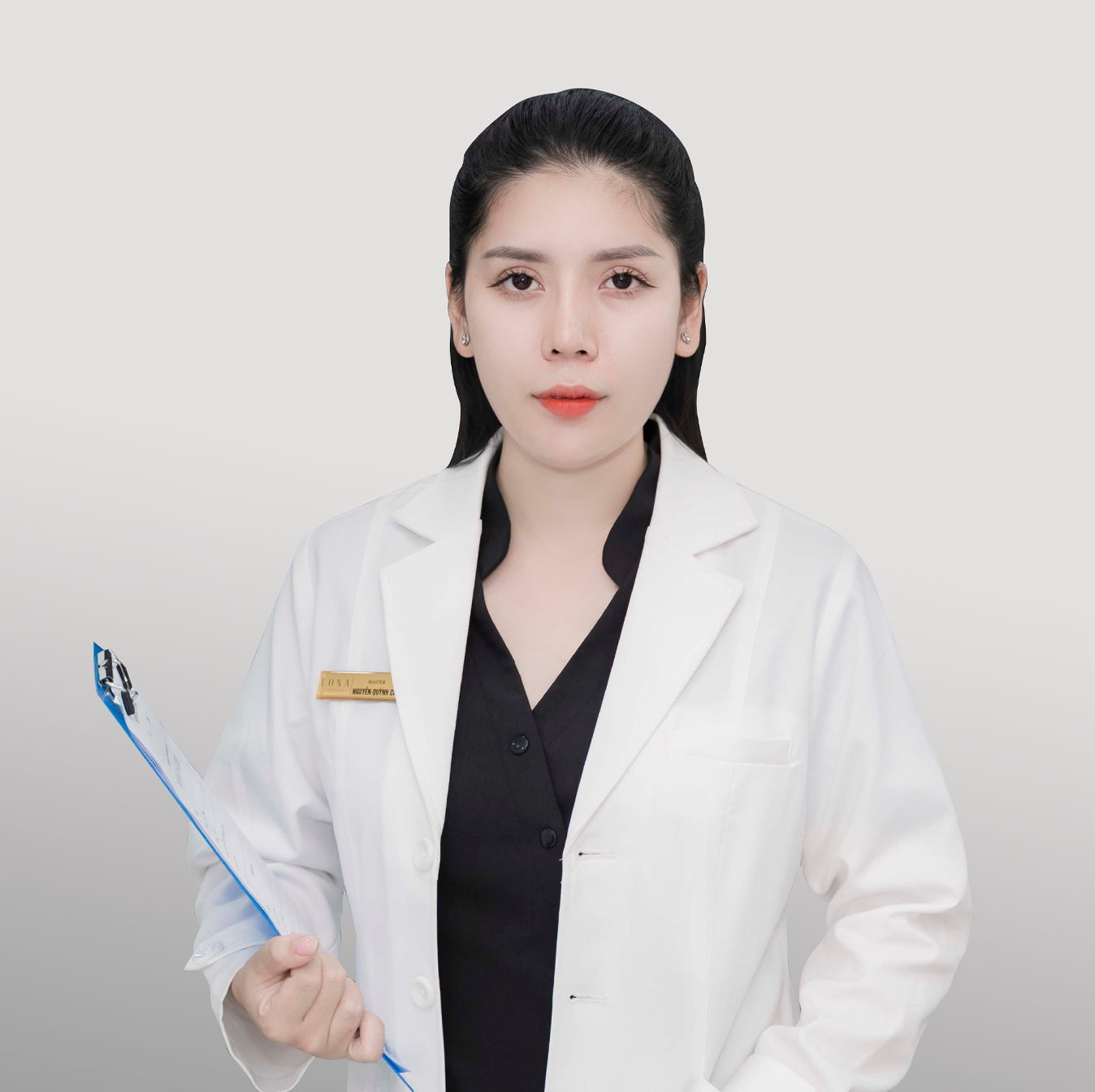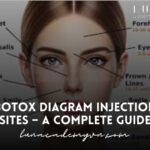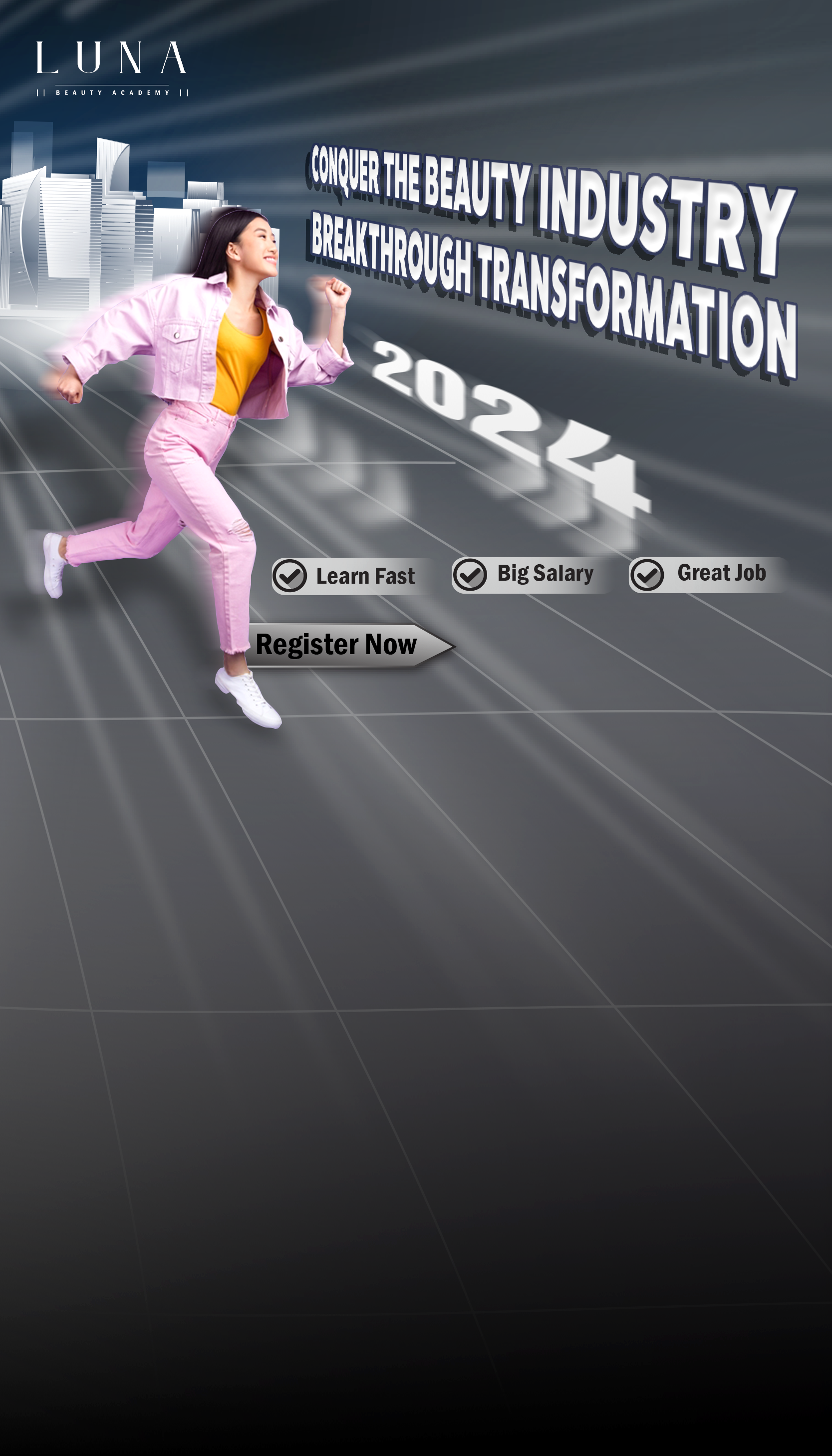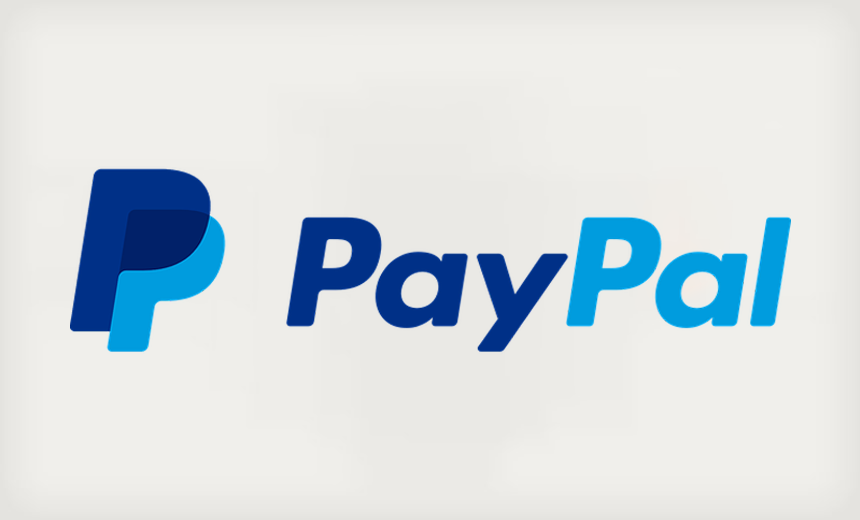Botox, a popular cosmetic treatment, has become a mainstay in the beauty industry, offering non-invasive solutions to reduce the appearance of wrinkles, fine lines, and other signs of aging. While Botox is widely recognized for its aesthetic benefits, many people wonder, “How does Botox work?” Understanding the science behind Botox and its mechanisms of action is essential for both professionals in the field and patients considering the treatment.
At Luna Beauty Academy, we are dedicated to providing in-depth knowledge of aesthetic treatments, and Botox is one of the most requested procedures among patients. This blog aims to explore the inner workings of Botox, shedding light on its effects, benefits, and how it is used to achieve flawless, natural-looking results.
Table of Contents
ToggleWhat is Botox?
How Does Botox Work to Treat Migraines: Full Scope
Botox is the brand name for a purified form of botulinum toxin, a neurotoxin produced by the bacterium Clostridium botulinum. It is most commonly known for its cosmetic applications, where it is injected into targeted muscles to temporarily relax them. This temporary muscle paralysis results in smoother skin and a reduction in the appearance of wrinkles.
Despite being derived from a toxin, Botox has been widely used for medical and cosmetic purposes for over two decades. It is FDA-approved for various medical treatments, such as muscle spasm disorders, excessive sweating, and chronic migraines, but its most popular use remains in cosmetic procedures.
How Does Botox Work: The Mechanism of Action
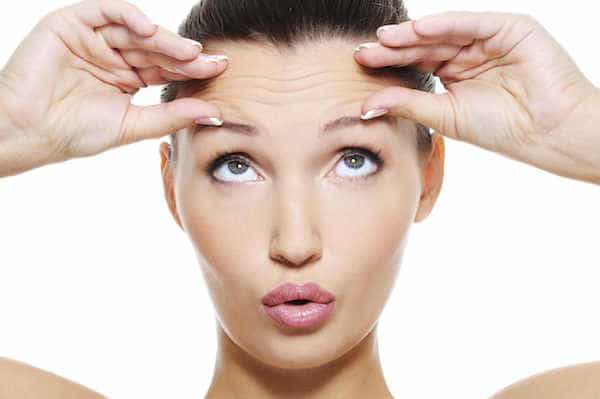
How Does Botox Work to Treat Migraines: Full Scope
To truly understand how does Botox work, it is essential to explore the science behind its action in the body. When Botox is injected into a specific muscle, it blocks the release of acetylcholine, a neurotransmitter that enables nerve signals to reach muscles. Without acetylcholine, the muscle is unable to contract, resulting in a temporary paralysis of the muscle.
In the context of cosmetic treatments, this paralysis effect works to reduce the activity of the muscles responsible for dynamic wrinkles—those caused by facial expressions, such as frown lines, crow’s feet, and forehead lines. As the targeted muscles relax, the overlying skin smooths out, which leads to a more youthful and rejuvenated appearance.
Step-by-Step Process of Botox Injection

How Does Botox Work to Treat Migraines: Full Scope
Here’s a simplified breakdown of how does Botox work when it’s injected into a patient:
- Injection: A trained medical professional injects small amounts of Botox into the target muscles using a very fine needle. The areas treated typically include the forehead, between the eyebrows, around the eyes, and the neck.
- Neuromuscular Blocking: Once injected, Botox binds to the nerve endings at the neuromuscular junction. It inhibits the release of acetylcholine, preventing the nerve from transmitting signals to the muscles.
- Muscle Paralysis: By blocking these signals, Botox effectively paralyzes the treated muscles, stopping them from contracting. This relaxation of the muscles reduces the formation of wrinkles.
- Results: Within a few days, the treated area begins to show visible improvements. Wrinkles and fine lines gradually smooth out as the muscle relaxes and the skin becomes more even.
How Does Botox Work does not affect other muscles or functions in the body, and it is generally considered safe when administered by a qualified professional. It is important to note that Botox’s effects are temporary and typically last 3-4 months, after which the procedure can be repeated.
Aesthetic Benefits of Botox: Why It Works

How Does Botox Work to Treat Migraines: Full Scope
The question, “How does Botox work?”, often leads patients to ask why it has such impressive results in aesthetic procedures. The key lies in its ability to target specific muscles and block the contraction that causes wrinkles. Here are some of the most common aesthetic benefits Botox provides:
1. Smoothing Fine Lines and Wrinkles
One of the primary reasons patients seek Botox treatments is to reduce the appearance of fine lines and wrinkles. Botox is particularly effective for dynamic wrinkles, which are caused by facial expressions like frowning, squinting, and smiling. Common areas treated with Botox include:
- Frown Lines: Vertical lines between the eyebrows that develop as a result of frowning.
- Crow’s Feet: Wrinkles around the eyes caused by squinting or smiling.
- Forehead Lines: Horizontal lines that form on the forehead due to raising eyebrows.
By relaxing the underlying muscles responsible for these wrinkles, Botox smooths out the skin, creating a more youthful, refreshed appearance.
2. Non-Surgical Facelift
Botox injections offer a non-invasive solution to rejuvenating the face without the need for surgery. Many patients opt for Botox as a less risky, lower-cost alternative to facelift surgery. Botox can provide subtle lifting effects, especially around the eyebrows and jawline. It can also help soften the appearance of a sagging neck.
3. Prevention of Wrinkles
Another exciting benefit of Botox is its ability to prevent future wrinkles from forming. Many patients use Botox preventively before significant lines and wrinkles appear. By relaxing the muscles that cause wrinkles, Botox can delay the onset of aging signs, keeping the skin smooth and youthful for longer.
4. Lifting the Brow
How Does Botox Work can also be used strategically to lift the brow, giving patients a more open and youthful look. By injecting Botox into the muscles that pull the brows down, it can help lift the brow area without the need for surgery.
Botox Beyond Aesthetics: Other Medical Uses
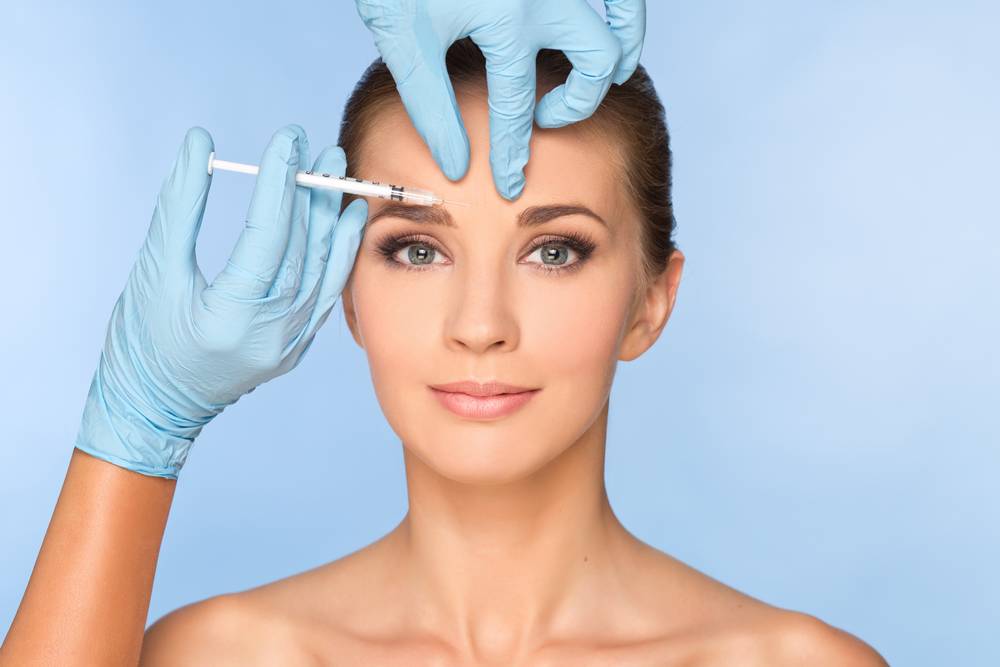
How Does Botox Work to Treat Migraines: Full Scope
While how does Botox work is often discussed in the context of beauty treatments, it is also important to acknowledge its versatility in treating various medical conditions. Some of the medical applications of Botox include:
1. Chronic Migraines
Botox injections have been approved by the FDA for the treatment of chronic migraines. Botox helps prevent the onset of migraines by blocking the release of certain chemicals involved in pain transmission. It is typically injected into specific areas of the head and neck to alleviate migraine symptoms.
2. Hyperhidrosis (Excessive Sweating)
Botox can be used to treat excessive sweating by blocking the signals from the nervous system that trigger sweat glands. This is especially helpful for patients who experience underarm sweating, sweating on the hands, or excessive sweating in other areas.
3. Muscle Spasms and Strain
Botox injections are used to treat conditions that cause muscle spasms, including cervical dystonia (neck spasms), blepharospasm (eye twitching), and spasticity in the arms or legs. By relaxing overactive muscles, Botox provides relief from pain and discomfort associated with these conditions.
4. Overactive Bladder
Injections of Botox can help patients suffering from overactive bladder, which is characterized by frequent, uncontrollable urges to urinate. Botox works by blocking the neurotransmitter acetylcholine in the bladder, leading to fewer involuntary contractions.
How Does Botox Work in Different Areas of the Face?

How Does Botox Work to Treat Migraines: Full Scope
How Does Botox Work can vary slightly depending on the area being treated. The key to effective results lies in selecting the appropriate injection sites and dosages for each patient. Let’s take a closer look at some of the most common areas treated with Botox:
1. Forehead Lines
When Botox is injected into the forehead, it relaxes the frontalis muscle, which is responsible for lifting the eyebrows. This helps smooth out horizontal lines that can make a person appear angry or tired.
2. Frown Lines
Frown lines, also known as glabellar lines, are created by the corrugator muscles. Botox works by blocking these muscles, reducing the furrowing of the brows and giving patients a more serene expression.
3. Crow’s Feet
Crow’s feet are the tiny lines that form at the outer corners of the eyes due to smiling or squinting. Botox can target the orbicularis oculi muscles around the eyes, preventing them from contracting and creating smoother, wrinkle-free skin.
4. Nefertiti Lift
The Nefertiti lift uses Botox to sculpt the neck and jawline. Botox relaxes the platysma muscle, which can cause sagging in the neck area, leading to a smoother and more defined jawline.
5. Bunny Lines
Bunny lines are the small wrinkles that form on the sides of the nose when a person scrunches their face. Botox is injected into the nasalis muscle to reduce the appearance of these lines.
What Happens After a Botox Treatment?

How Does Botox Work to Treat Migraines: Full Scope
After a Botox treatment, patients may experience minor side effects, such as redness or swelling at the injection site. These symptoms typically subside within a few hours. The results of Botox injections can take anywhere from 3 to 5 days to fully appear, with the effects lasting up to 3-4 months.
Patients are advised to avoid rubbing or massaging the treated areas immediately after the procedure, as this could cause Botox to migrate to unintended areas. It is also important to refrain from strenuous exercise or alcohol consumption for at least 24 hours after the treatment.
Conclusion: How Botox Works for a Youthful and Natural Look
How does Botox work? In simple terms, Botox works by temporarily paralyzing the muscles responsible for causing wrinkles and fine lines. This leads to smoother, younger-looking skin with minimal risk and downtime. Whether you are a medical professional or someone considering Botox for the first time, understanding the science behind Botox’s effects is key to achieving the best results.
At Luna Beauty Academy, we are committed to providing thorough training on Botox and other aesthetic treatments. Our courses are designed to equip professionals with the skills and knowledge needed to offer safe and effective Botox treatments. By understanding how does Botox work, you can confidently help your patients achieve their aesthetic goals, whether it’s reducing wrinkles or enhancing facial contours.
If you are ready to take your skills to the next level, consider enrolling in our Botox certification courses today.
Contact us via other platforms if you have any questions or requests that need to be answered quickly.
Tiktok: www.tiktok.com/@lunabeautyacademy6
Hotline: 034 254 0228
Email: lunabeautyacademy@gmail.com
Address: No. 29, Alley 140/1/2, Lane 140 Nguyen Xien, Thanh Xuan, Hanoi
Luna wishes you success and hopes you will have the best experiences at the academy. If you need advice or answers about anything, please leave your Contact Information With Us, the Luna team will contact you soon. Thank you for reading this article.
